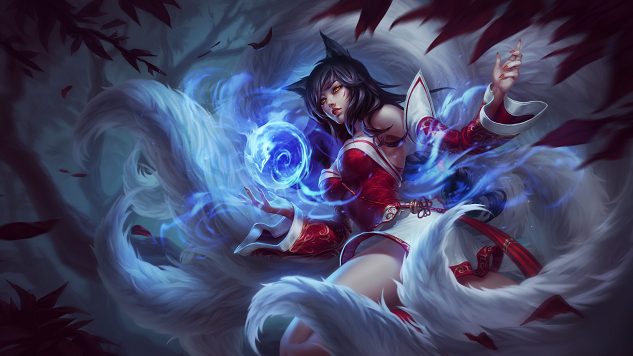League of Legends developer Riot Games has released a lengthy statement responding to allegations that the studio has a culture of predominant workplace sexism and toxicity.
On Aug. 7, Kotaku published a report written by Cecilia D’Anastasio titled “Inside The Culture of Sexism At Riot Games,” which details the experiences of former and current employees at the studio, most of whom painted a picture of Riot Games as a toxic environment for marginalized people, particularly women. The report went viral on social media to the point that more people who have worked at Riot Games have since come forward with their own in-depth stories.
Ex-employee and current Senior Community Manager at Crystal Dynamics Meagan Marie wrote a detailed blog post on Tumblr in which she discussed the experiences that led her to leave Riot Games after a mere six months. Former game developer Kristen Fuller recounted her harrowing experiences with misogyny in the industry in a long blog post of her own, detailing her experiences at Riot Games. On his personal blog, Barry Hawkins, an ex-employee at Riot Games and current Director of Technical Program Management at Hulu, wrote about how the studio’s toxicity prompted him to quit after a year.
The Kotaku report resonated with many, especially in the era of #MeToo, for it highlighted that even at the top, sexism is a problem that we must all work to fix on both a micro and macro level.
Riot Games is eager to acknowledge this. Wednesday, the studio responded to the serious allegations, taking accountability for them and outlining what it calls the studio’s “First Steps Forward.”
The statement is worth a read, but we’ve highlighted the studio’s concrete plans to create a better culture below.
First Steps
Expanding the Culture and D&I Initiative: We’ve built a new team to lead our cultural evolution. This group and their work will impact every corner of this organization, and will also accelerate our existing cultural and inclusion work. We are all committed to keeping the best parts of today’s Riot—like our focus on player empathy—while tirelessly looking toward the future. The team will be accountable to our CEO directly.
Revisiting Cultural Definitions: We are putting everything on the table, including our core cultural tenets, like our manifesto. This includes reevaluating the language of Riot, words like “gamer” and “meritocracy,” to ensure they mean the same thing to all of us. If the words are misused or don’t help us describe our vision for the future, we won’t use them.
Third-Party Evaluation: We have engaged two leading consultants on culture change to provide us with their expertise and recommendations as we rebuild Riot’s culture. Our goal isn’t just to be good; it’s to become a leader on diversity, inclusion, and culture. We’re asking them to develop mechanisms to measure our progress and hold us accountable against this objective.
Investigation Process: We’re evaluating and improving our investigation process and systems. We understand we lost trust with Rioters, so rebuilding trust is key to making Rioters feel safe and empowered to raise issues. Here’s some of what we’ve done already:
We set up a hotline where anyone can anonymously raise issues and submit complaints.
We have expanded our internal team, and brought in an outside law firm to assess our policies. They’ll also be working side-by-side with talent partners to investigate any new claims raised by Rioters to provide an additional, unbiased layer to all of our investigations.
No one and nothing is sacred. We are prepared to make big changes and have begun taking action against specific cases, including removal of Rioters, though we aren’t likely to get into those details publicly on a case-by-case basis for legal and privacy reasons.
Reevaluating Recruiting: We’re accelerating our efforts to make our recruiting system more open. We’re overhauling our job descriptions to ensure they’re readily accessible to all demographic groups; reassessing which universities we recruit from; and expanding the pools from which we target our candidates.
Trainings: We’re doubling down on trainings. Trainings that had been specific to managers are being expanded to all Rioters, including interview training and anti-harassment training. We’re also investing in anti-bias training to encourage behaviors that foster a fair and inclusive work environment. In addition, we are investing in management training for all managers to build and support better teams. These trainings will be required for existing Rioters, with elements integrated into our Rioter onboarding program.
Staffing up for D&I: We are deep into the process of recruiting a new Chief Human Resources Officer (CHRO), and recently began the search for a Chief Diversity Officer (CDO). They will join the CEO, President, and COO as part of our executive leadership team, and will add critical experience to our existing D&I team to accelerate all our work in this area.
The studio concludes the statement by saying, “We’ve always believed that Riot should be the home for the very best talent in gaming. It’s clear we’ve fallen short of that goal. But we’ve never backed down from a challenge before and we don’t plan to start now.”
It seems like a good step in the right direction for the studio, and the initial story, subsequent conversations and company response reflect the importance of journalism and its role in holding both people and corporations accountable.
